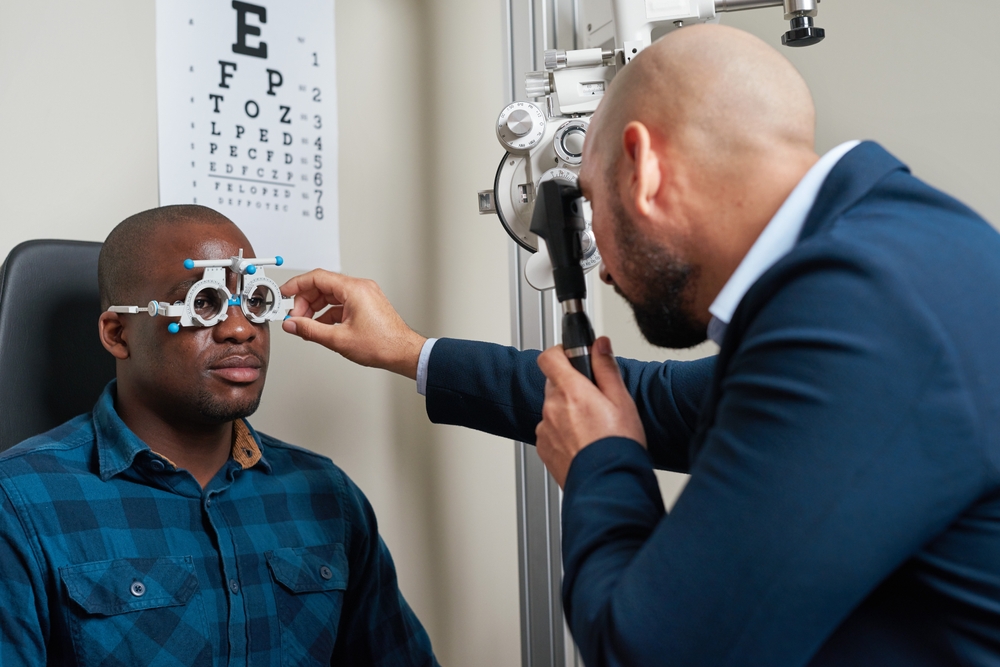
Your eyes do more than help you see the world around you - they can also reveal important clues about your overall health. During a comprehensive eye exam, your optometrist can detect early signs of eye diseases and even systemic conditions like diabetes or high blood pressure, often before you notice any symptoms. These early detections are critical because many eye diseases develop silently and can cause permanent vision loss if left untreated.
What Is a Comprehensive Eye Exam?
A comprehensive eye exam is much more than a vision screening. While a basic screening may only check how well you can read an eye chart, a comprehensive exam assesses the overall health and function of your eyes. During this visit, your optometrist evaluates visual acuity, eye coordination, depth perception, color vision, and examines the internal and external structures of your eyes.
The process typically includes:
• Visual acuity testing - measures how clearly you can see at different distances.
• Refraction testing - determines your exact prescription for glasses or contact lenses.
• Eye pressure testing (tonometry) - screens for glaucoma.
• Retinal examination - checks for signs of disease in the back of the eye using advanced imaging technology.
• Slit-lamp exam - allows your doctor to examine the cornea, iris, and lens under high magnification.
Advanced Tests and Technology
Modern optometry uses state-of-the-art diagnostic tools to detect even the earliest changes in your eyes. At The Eye Man, we utilize advanced imaging such as:
• Optical Coherence Tomography (OCT): creates detailed cross-sectional images of your retina, helping to identify glaucoma, macular degeneration, and diabetic eye disease early.
• Retinal photography: captures high-resolution images of the back of your eye for detailed analysis and long-term tracking.
• Visual field testing: detects blind spots or peripheral vision loss, which can be an early sign of neurological or ocular conditions.
These tools allow your optometrist to identify small changes before you experience any vision problems, leading to earlier intervention and better outcomes.
Common Eye Diseases You Might Not Notice
Many eye diseases progress silently - without pain or obvious symptoms - until permanent damage has already occurred. Some of the most common conditions detected during eye exams include:
• Glaucoma: often called the “silent thief of sight,” it damages the optic nerve with no early warning signs.
• Diabetic retinopathy: occurs when high blood sugar damages the blood vessels in the retina, leading to vision loss if untreated.
• Age-related macular degeneration (AMD): affects central vision and is a leading cause of blindness in older adults.
• Cataracts: clouding of the eye’s lens that can develop gradually over time.
• Hypertensive retinopathy: caused by high blood pressure, it can lead to vision changes and signal cardiovascular risk.
The Importance of Annual Eye Exams
Even if your vision seems perfect, scheduling an annual comprehensive eye exam is essential. Regular exams allow your optometrist to detect changes in your vision or eye health before symptoms appear. Early diagnosis means early treatment, which can prevent or slow down the progression of many eye diseases.
In addition, eye exams can uncover signs of systemic health issues such as diabetes, high cholesterol, autoimmune disorders, or even certain cancers - making them an important part of your overall health care routine.
Safeguard Your Vision with Preventive Eye Care
Your eyes are an important indicator of both your vision and your general health. By having regular comprehensive eye exams, you give yourself the best chance to catch potential problems early, preserve your sight, and maintain your quality of life. At The Eye Man, our team is dedicated to providing thorough exams using advanced technology to help safeguard your vision for years to come.
Schedule your comprehensive eye exam at The Eye Man to protect your vision and your health. Visit our office in New York, New York, or call (212) 873-4114 to book an appointment today.








